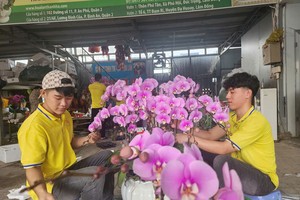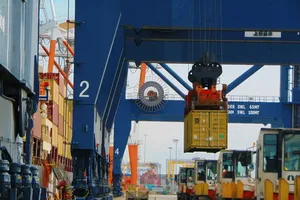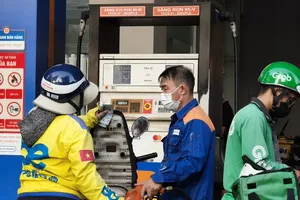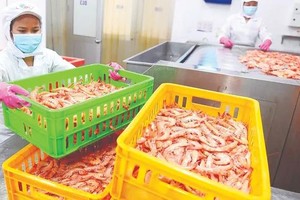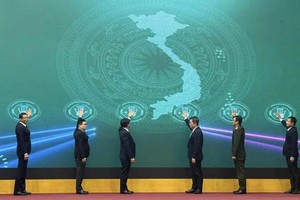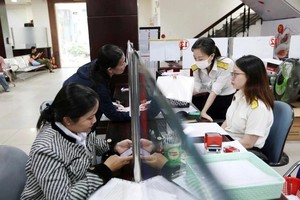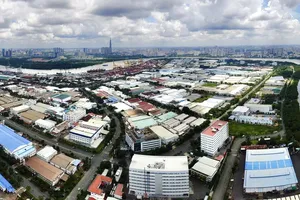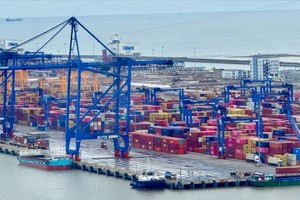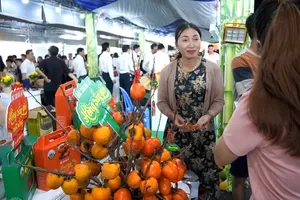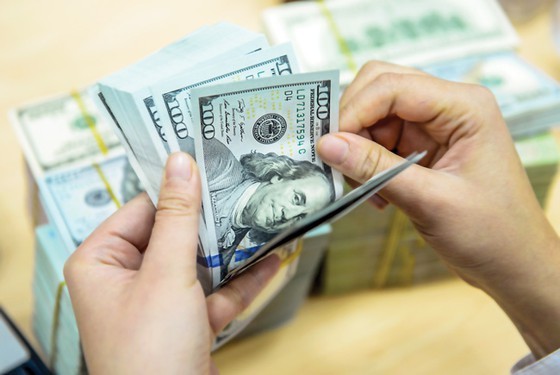 Illustrative photo
Illustrative photo
Speaking in an interview with Saigon Investment, Dr. NGUYEN TRI HIEU, a banking expert, expressed his views on this issue.
Dr. NGUYEN TRI HIEU: - Since the beginning of the year, experts have warned that the risk of inflation is very high for many economies around the world. The increase in world commodity prices from the beginning of 2021 to now, along with loosening fiscal and monetary policies of many countries, is raising global inflation. The increase in the price of world goods, especially the price of input materials such as iron and steel, and kerosene, is primarily due to a disrupted supply chain. Next, in context of the pandemic, facilities that exploit raw materials such as crude oil, coal, and metals, such as iron and steel, are also affected in terms of human resources, causing prices to rise. At the same time, there is the serious problem of intercontinental transportation of goods by sea and air, which is still facing many difficulties.
Regarding fiscal and monetary policies in countries, the Governments of many countries still keep low-interest rates and have huge economic support packages. More recently, the US had an additional economic relief package of US$ 1,900 bn, equivalent to nearly 10% of the total GDP. A large amount of government money in circulation combined with the optimistic expectation of a global economic recovery this year has increased the expectation of improving global demand for goods. Seeing this, manufacturers and distributors have been ahead of the market by increasing the price of goods.
This leads to a lot of negative forecasts about this year's inflation. In fact, the rate of inflation in the US has increased sharply. Thus, Vietnam's concern about the risk of inflation is well-founded. In my opinion, keeping the inflation rate below 4% this year as the target will be very difficult.
JOURNALIST: - Sir, according to the General Statistics Office, the average Consumer Price Index (CPI) in the first four months of 2021 increased the lowest since 2016, and the core inflation in the first four months of 2021 is the lowest level in the last five years. What is your comment on this?
- In the first months of the year, the domestic situation was not affected much, but in the second quarter, the price of gasoline, raw materials, and food increased, which will increasingly push up prices and inflation. I think that from the second quarter, inflation will increase, especially in the second half of the year it will increase much more sharply. As currently the price of domestic goods has increased, and with Vietnam importing raw materials from around the world, prices will go up even higher, so inflation will be pushed up this year. Of course, the evolution of inflation in world economies as well as in Vietnam will depend on whether the pandemic is controlled or not in coming months.
According to my forecast, in case the pandemic is well controlled from now until the end of the year, Vietnam's economy will still develop and inflation may be higher than the target set by 1%. In the event that the pandemic cannot be controlled, all production and business activities will be affected, as the supply chain is broken, and gasoline prices and electricity prices will increase, and inflation can reach 6%. In such context, the solution to reduce inflationary pressure this year is that the Government control the price of some commodities in the market through a price stabilization fund, and at the same time apply fiscal discipline to prevent inflation in order to limit the increase in gasoline or electricity prices. That can prevent the price spike that causes inflation.
- Sir, there is an opinion that in Vietnam, price-related inflation is more worrisome than monetary-related inflation. What is your opinion on this?
- In my opinion, it is necessary to pay attention to both price and currency inflation factors. In a pandemic situation, the supply chain is broken and there is import inflation due to purchase of goods from abroad, which is a price increase. However, monetary policy also plays an important part in pushing up inflation. In Vietnam, lower interest rates are also favorable for banks to push money out. At the same time, the Government also has policies to support businesses through support packages to boost the economy.
It must be said that the monetary policy of Vietnam to reduce interest rates and push a large amount of money into circulation is necessary because the economy is being strongly affected by the ongoing Covid-19 pandemic. A dose of monetary policy to stimulate growth in the economy is needed. However, when a large amount of money goes into circulation, it creates the risk of inflation. It must be remembered that if you stimulate the economy with money, you must also accept rising inflation.
Also, monetary policy has two goals of supporting economic development and protecting the value of the dong, which is to fight inflation. In the long run, these two factors support each other and go together. However, in the short term, these two factors are opposite and contrasting with each other. If you want to have economic stability, you must allow inflation to occur, and on the contrary, if you want to control inflation, you may have to sacrifice economic growth. In the current pandemic situation as was during the economic crisis in the past, it is very important to let the economy develop. Therefore, the goal of controlling inflation is very important, but maybe at this point, the issue of promoting the economy should take precedence.
However, there is one point to note. The cash flow is currently rotating faster, but it is going through the stock market, real estate, and commodity spending. Thus, in addition to increase in commodity prices, this rapid cash flow combined with the acceleration of cheap cash flow into real estate and securities may become synergistic factors causing inflation. We need to pay attention to occurrence of such inflation.
- Thank you very much.

